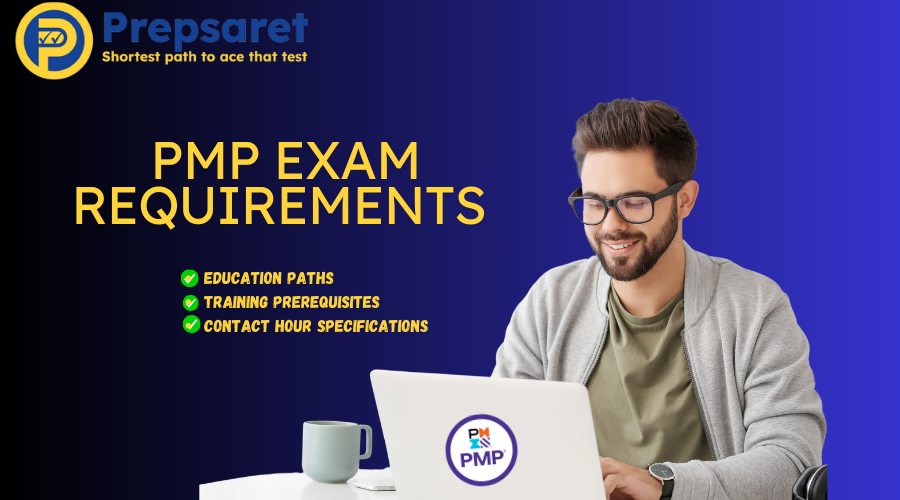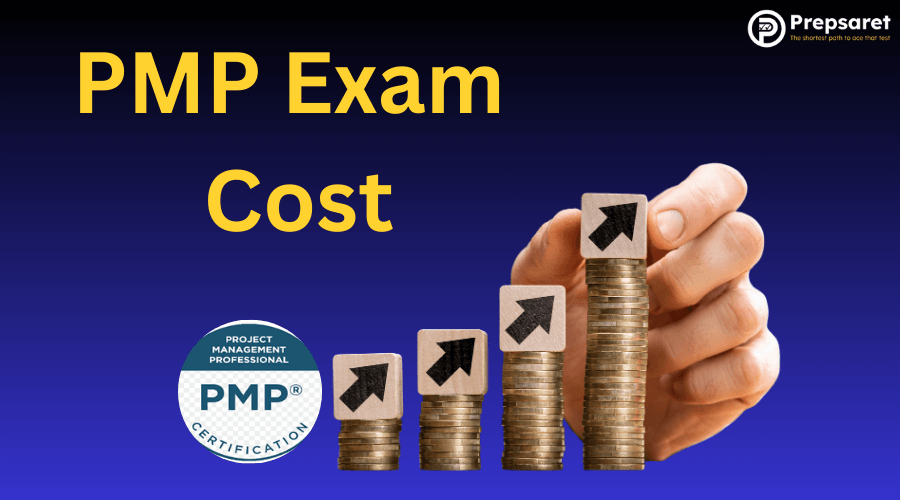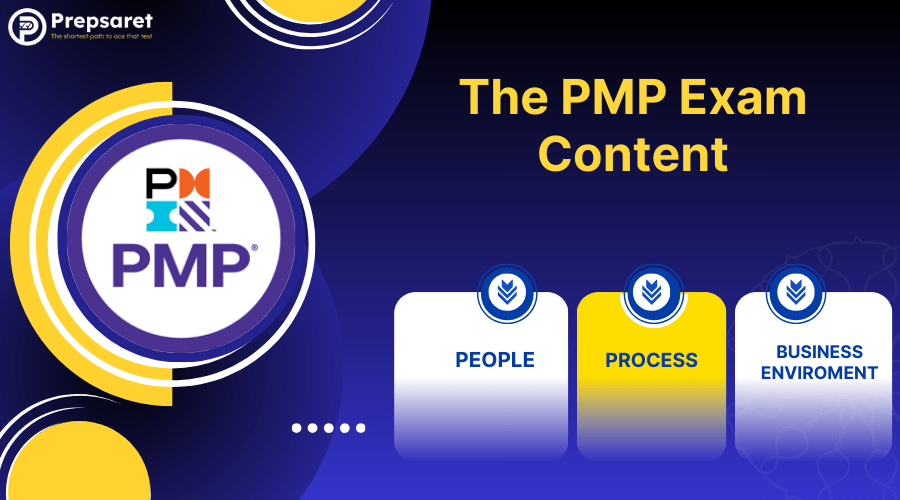Looking to advance your project management career? Wondering what the PMP certification is all about? You’re in the right place! PMP certification is one of the most valuable credentials in the field, and with the right preparation, you can pass the exam on your first try.
Using quality study materials like those from Prepsaret can make all the difference. Their comprehensive resources are designed to help you succeed. Let’s dive into everything you need to know about becoming a certified project management professional!
About the PMP Certification
The Project Management Professional (PMP) certification is the gold standard credential for those working in project management.
Offered by the Project Management Institute (PMI), this certification validates your expertise and experience in leading and directing projects.
Unlike other entry-level certifications, the PMP demonstrates that you have both the project management education and practical experience to successfully manage projects across various industries and methodologies.
The PMP certification exam is rigorous and comprehensive, testing your knowledge across different domains of project management career skills.
It’s recognized globally and can significantly boost your credibility and earning potential in the competitive job market.
PMP Certification Requirements

Before you can sit for the PMP exam, you need to meet specific prerequisites related to education and hands-on experience. These PMP requirements ensure that only qualified professionals can earn this prestigious credential.
Here’s what you need:
Education Requirements:
- A four-year bachelor’s degree or global equivalent
- OR a high school diploma, associate’s degree, or global equivalent
Experience Requirements:
Based on your educational background:
- With a bachelor’s degree: 36 months (3 years) of leading projects with 4,500 hours of project management
- With a high school diploma or associate’s degree: 60 months (5 years) of leading projects with 7,500 hours of project management
Additionally, all candidates must complete 35 hours of formal project management education before taking the PMP certification exam.
These requirements might seem demanding, but they ensure that PMP certification holders have the necessary project management experience and project management knowledge to excel in their roles.
How to Get PMP Certified
Becoming PMP certified involves several steps:
- Check your eligibility: Ensure you meet the education and experience requirements outlined above.
- Complete the application: Register on the PMI website and submit your application, detailing your project management experience.
- Application review: PMI may audit your application to verify your experience and education claims.
- Schedule the PMP certification exam: Once approved, pay the exam fee and schedule your test date.
- Study and prepare: Utilize high-quality study materials to ensure you’re thoroughly prepared.
- Take and pass the exam: The computerized test consists of 180 questions to be completed in 230 minutes.
- Maintain your certification: After passing, fulfill the ongoing requirements to keep your credential active.
Find Out: How to Get PMP Certification
PMP Certification Renewal & Maintenance
Earning your certification is just the beginning. To maintain your status as a PMP certification holder, you’ll need to engage in continuous professional development.
The PMP certification renewal process requires:
- Earning 60 Professional Development Units (PDUs) every three years
- Paying a renewal fee to PMI
- Meeting ongoing training requirement standards
PDUs can be earned through various activities, including:
- Attending webinars and conferences
- Taking courses
- Contributing to the profession (speaking, writing, volunteering)
- Working as a practitioner
This renewal process ensures that certified professionals stay current with evolving best practices and new developments in the field after passing the PMP exam.
What is PMP Certification Cost

The PMP certification cost question is important for planning your professional development budget. Here’s a breakdown of the expenses you can expect:
- Exam Fee:
- PMI Members: $405
- Non-members: $555
- PMI Membership: $139 annually (optional but saves you money on the exam fee)
- Training Courses: $300-$3,000 depending on the provider and format
- Study Materials: $50-$300 for books, practice exams, and other resources
- Renewal Costs: Approximately $60-$150 every three years, plus the cost of activities to earn PDUs
- Retake Fees:
- For PMI members: $275.
- For non-members: $375.
While the investment isn’t small, most professionals find that the return on investment through increased salary and career opportunities makes it worthwhile.
Check Out: How the PMP Certification Pays Off
What is PMP Certification Salary
One of the most compelling reasons to pursue the PMP certification is the potential salary increase. According to PMI’s Salary Survey:
- PMP certification holders earn on average 25% more than non-certified project managers
- The average salary for PMP-certified professionals in the United States is approximately $123,000
- This credential is widely recognized across industries, allowing for flexibility in career choices
Your actual salary will vary based on:
- Geographic location
- Industry sector
- Years of experience
- Organization size
- Additional skills and expertise
Becoming PMP certified is one of the most effective ways to boost your earning potential in the project management field.
The PMP Exam Content

The PMP certification exam tests your knowledge across three key domains based on the Project Management Body of Knowledge (PMBOK® Guide) and other resources.
The exam covers:
- People (42%): Leadership and team management skills
- Conflict resolution
- Team building
- Motivation techniques
- Emotional intelligence
- Process (50%): Technical aspects of project management
- Project management principles
- Risk management
- Predictive project management approaches
- Agile or hybrid approaches
- Schedule and budget management
- Project quality assurance
- Business Environment (8%): How projects align with organizational strategy
- Business case development
- Benefits management
- Stakeholder engagement
- Compliance considerations in the business environment
The exam tests your ability to apply these concepts in various scenarios, not just memorize terms and processes.
Read More: What is the PMP Examination Structure?
How to Prepare and Pass the PMP Exam
PMP exam preparation is essential for success. Here are key strategies:
- Create a study plan: Allocate sufficient time (typically 2-3 months) to cover all the material.
- Use quality resources: Prepsaret offers comprehensive PMP training course materials that help candidates understand complex concepts clearly and effectively. Their resources are specifically designed to help you pass the PMP exam on your first attempt.
- Study the exam content outline: Understand the domains and tasks covered in the current version of the test. You can use resources like the Project Management Body of Knowledge (PMBOK® Guide) to familiarize yourself with the outline.
- Take practice exams: Familiarize yourself with the format of exam questions and improve your time management.
- Join study groups: Collaborate with other candidates to clarify difficult concepts.
- Consider your learning style: Choose resources (videos, books, flashcards) that align with how you learn best.
What makes Prepsaret stand out for PMP course preparation is their high pass rates and comprehensive materials. Their resources include:
- Practice questions that mirror the actual exam
- Clear explanations of complex concepts
- Study plans tailored to different learning styles
- Support from experienced PMP holders
Try Out: Sample PMP Practice Questions
With proper preparation, you can confidently face the exam knowing you’ve invested in quality materials that maximize your chances of success.
Why Get the Project Management Professional (PMP)® Certification
There are numerous compelling reasons to pursue this credential:
- Enhanced career opportunities: Opens doors to positions that specifically require PMP certification
- Advancement in your project management career: Demonstrates your commitment to the profession and readiness for greater responsibility
- Global recognition: Respected by project managers worldwide
- Networking: Join a community of over 1 million PMP certification holders globally
- Improved effectiveness: Gain new perspectives and techniques for managing projects successfully
- Better project team leadership: Learn advanced approaches to motivating and directing teams
- Comprehensive knowledge: Benefit from standardized project management training that covers both traditional and agile methodologies
The certification doesn’t just look good on your resume—it genuinely enhances your ability to deliver successful projects.
The Benefits of Becoming a PMP-Certified Project Manager
Beyond the impressive average salary increase, PMP certification holders enjoy numerous benefits:
- Competitive advantage: Stand out in job applications against non-certified candidates
- Job security: Positions requiring PMP certification typically experience less turnover
- Portable credential: This widely recognized certification travels with you across industries and borders
- Demonstrated commitment: Being PMP certified shows employers your serious dedication to the profession
- Standardized knowledge: Gain a comprehensive understanding that’s considered the global equivalent of project management expertise
These advantages explain why the PMP has remained the premier project management credential for decades.
PMP vs. CAPM: Which is Right for You?
If you’re early in your project management journey, you might be wondering about the CAPM certification (Certified Associate in Project Management) as an alternative.
Here’s how they compare:
| Aspect | PMP | CAPM |
| Experience Required | 3–5 years leading projects | Little to none |
| Difficulty | Advanced | Entry-level |
| Exam Length | 180 questions (230 minutes) | 150 questions (180 minutes) |
| Recognition | Extremely high | Moderate |
| Salary Impact | Significant | Modest |
| Target Audience | Experienced project managers | Entry-level or aspiring project managers |
| Cost | $405 (PMI members), $555 (non-members) | $225 (PMI members), $300 (non-members) |
While the CAPM is valuable for beginners, it doesn’t carry the same weight as being among PMP certification holders in the job market.
Continue Reading: What is the Passing Score for the PMP Examination?
FAQs
Is A PMP Certificate Worth It?
Yes, PMP certification is worth it. It significantly boosts earning potential (up to 25% higher salaries), enhances career opportunities, and provides global recognition in project management roles.
Is PMP Higher Than MBA?
PMP and MBA serve different purposes. PMP focuses on specialized project management skills, while MBA covers broader business management. PMP is often preferred for technical project leadership roles.
How Much Does PMP Cost?
The PMP exam costs $405 for PMI members and $555 for non-members. Additional expenses include training ($300–$3,000), study materials ($50–$300), and renewal fees ($60–$150 every three years).
What Are The Benefits Of PMP Certification?
PMP certification offers higher salaries, global recognition, improved project performance, enhanced skills, career advancement, and networking opportunities.
Is PMP Harder Than CPA?
PMP is challenging but not necessarily harder than CPA. Both require rigorous preparation; however, CPA focuses on accounting principles while PMP emphasizes project management methodologies.
How Long Does It Take To Study For PMP?
Preparation typically takes 2–4 months, depending on your experience and study schedule. This includes completing 35 hours of formal education and reviewing the PMBOK Guide.
What Is The Job Role Of PMP?
PMP-certified professionals manage projects by leading teams, ensuring timely delivery within scope and budget, mitigating risks, and aligning projects with organizational goals.
Conclusion: Is PMP Certification Right for You?
The PMP certification is a significant investment in time, effort, and money, but the benefits are well worth it for serious project management professionals. It challenges you to grow and opens doors to new opportunities.
Before committing, ask yourself: Can you meet the prerequisites? Are you ready to study? Can you afford the exam and materials?
If you choose to pursue it, quality preparation is essential. Prepsaret’s PMP course materials can help you pass on your first attempt. Start your journey today with Prepsaret!

